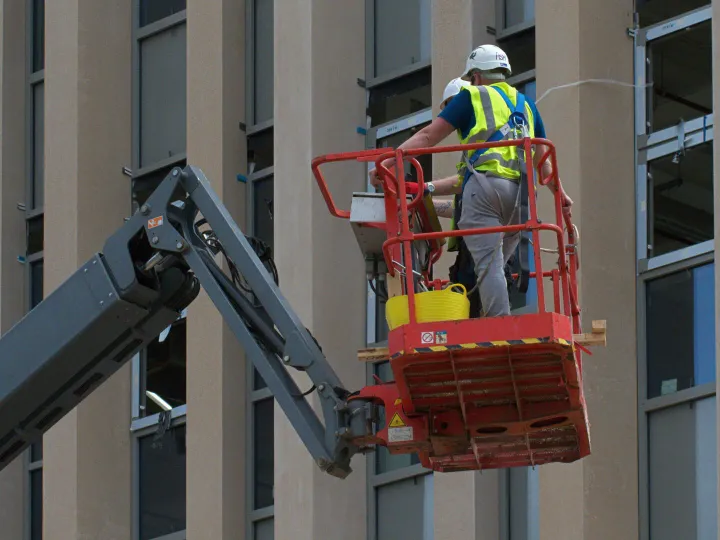Why hire a certified contractor?
The strategic value of industrial coatings
In the industrial landscape, coatings serve a critical function far beyond cosmetic appeal; they provide essential protection against corrosion, chemical exposure, thermal stress and mechanical wear. Whether it's a petrochemical plant, a water treatment facility, or an offshore structure, asset integrity is paramount. In the UK, choosing a certified industrial coatings contractor is as crucial as selecting the right materials, given stringent health and safety regulations and increasingly volatile environmental conditions.
These professionals possess the verified skill set and industry knowledge required to execute technically complex tasks in high-stakes environments. Certification from recognised bodies, such as the Institute of Corrosion, the Society for Protective Coatings (SPC), or NACE (AMPP), ensures adherence to international best practices. More than a badge of honour, such accreditation guarantees competency in surface preparation, coating selection, and environmental controls, each of which significantly influences the durability and performance of protective coatings.
Technical precision meets regulations
Regulatory compliance in the UK coatings industry is non-negotiable. Health and safety regulations, such as the Control of Substances Hazardous to Health (COSHH) and guidelines set out in the Environmental Protection Act , place substantial responsibilities on painting contractors. A certified coatings professional not only understands the regulatory requirements of any painting contract but can also effectively integrate good practice into standard work processes.
Technical application is another area where certification adds undeniable value. Industrial coatings are complex formulations, including epoxies, polyurethanes, polyaspartics, and more, that require precise mixing, control of ambient conditions, and specified curing times. Improper application can result in premature failures, substrate damage and, ultimately, costly reworks.
Certified contractors employ calibrated equipment, data-logging technologies and digital inspection methods to meet or exceed the required standards. These may include Dry Film Thickness (DFT) verification, adhesion testing, or surface profile assessment, each tailored to the substrate and intended service environment.
Economic efficiency and making things last
From a purely financial standpoint, hiring a certified contractor typically results in lower long-term costs. This may sound counter-intuitive given that certified professionals usually command a higher daily rate; however, that rate reflects the quality assurance, specialised knowledge and reduced likelihood of failure they bring to the table. For industrial clients with strict production schedules or operating in harsh environments, even minor delays or failures in coatings can result in substantial operational losses.
Furthermore, asset longevity improves when an appropriate coating system is designed and implemented. Certified contractors often conduct preliminary surveys and collaborate with coating manufacturers to specify tailored solutions that meet specific needs. They may recommend a multi-layer coating system, incorporating primers, intermediate coats and topcoats, to maximise performance. These strategies are grounded in an understanding of corrosion mechanisms, chemical exposure profiles, and mechanical stresses unique to the specific asset. The result is increased mean time between maintenance (MTBM) and reduced total cost of ownership.
Reputation, reliability and trust
Beyond technical competencies, certified contractors bring an element of trust and professionalism to the project. Certification bodies impose strict ethical codes and require continuous professional development. This ensures contractors remain up to date with the latest techniques, safety practices and innovations in coatings technology. It also makes them more likely to adopt emerging technologies, such as thermographic analysis, digital QA/QC documentation, and non-destructive testing (NDT), all of which enhance project oversight and management.
Clients in the UK, particularly those operating under frameworks such as ISO 55000 Asset Management, are increasingly prioritising contractor reliability when selecting vendors. Certification streamlines the procurement process, and working with a certified professional often grants access to extended warranties from coating manufacturers, who generally require installer qualifications to activate the warranty.
Expert infrastructure for the future
As industries move towards digitalisation, decarbonisation, and sustainability, the role of industrial coatings is becoming increasingly critical. Coating systems that reflect solar radiation, resist biofouling, or integrate with intelligent monitoring systems are no longer speculative; they're fast becoming standard in the UK market. Certified contractors are better positioned to understand and implement these advanced technologies due to ongoing training requirements and exposure to evolving industry standards.
As environmental regulations tighten and pressure to minimise downtime and emissions increases, demand for Volatile Organic Compounds (low-VOC) coatings, rapid-cure materials, and environmentally friendly surface preparation methods is expected to rise. Certified professionals are already adapting to these shifts by utilising safer abrasive media, robotic applicators, and solvent-free formulations, thus aligning their practices with both client expectations and legislative developments.

